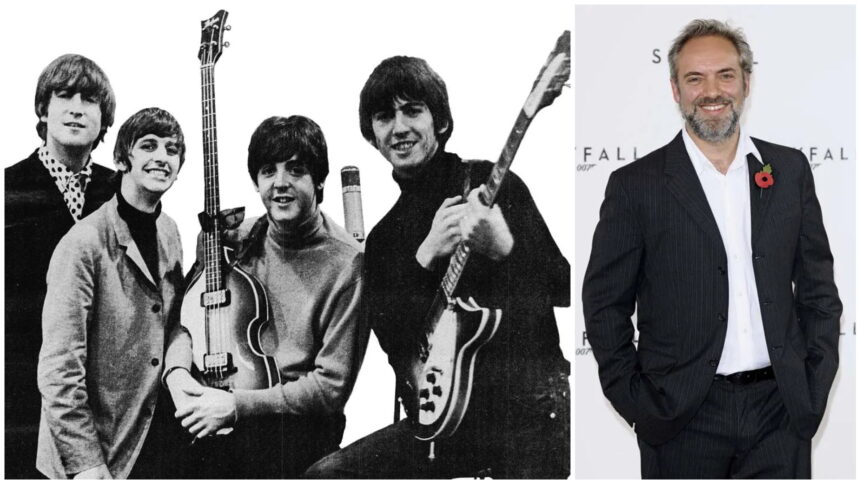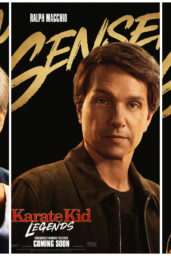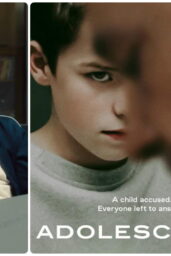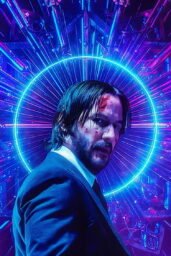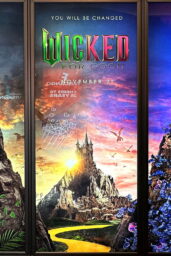Is Sam Mendes' Beatles Saga a Revolutionary Move or a Recipe for Disaster?
Let's cut to the chase: this is either going to be the greatest rock biopic experiment in history—or a financial faceplant so big, Hollywood won't try it again for decades. Sam Mendes, the visionary director behind Skyfall and 1917, has set out to do something that's never been attempted before: four full-length Beatles biopics, all hitting theaters on the exact same day in April 2028.
Sony Pictures, Mendes, and the entire cast are betting on the idea that audiences will treat this like a binge-able theatrical experience—a phrase that sounds like Netflix execs infiltrated Hollywood boardrooms.
But here's the big question: Will this work, or is Mendes setting himself up for a logistical and financial nightmare?
The Plan: Four Films, Four Perspectives, One Shared Universe
Mendes' ambitious project isn't just a standard band biopic. Instead, each of the four films will focus on one Beatle—John, Paul, George, and Ringo—giving audiences different angles on the same events. Think Rashomon, but with mop-top haircuts and screaming fans.
The Cast and Storytelling Approach
The cast is solid:
- Harris Dickinson as John Lennon
- Paul Mescal as Paul McCartney
- Barry Keoghan as Ringo Starr
- Joseph Quinn as George Harrison
Each film will have its own screenwriter, with Peter Straughan (Tinker Tailor Soldier Spy) and Krysty Wilson-Cairns (1917) among the big names involved. The goal? To present certain famous moments in Beatles history from different perspectives, making the audience rethink what they thought they knew about the band.
That's bold. That's risky. That's… exactly the kind of thing that either cements Mendes as a genius or turns him into a cautionary tale.
The Pros: Why This Could Be a Game-Changer
1. The First True Theatrical Binge-Watch
Studios have been struggling to keep audiences coming to theaters. If Mendes pulls this off, it could revolutionize how studios think about multi-film storytelling. Imagine future franchises releasing entire sagas in one weekend instead of spacing them out over a decade.
2. Built-in Fandom Hype
It's The Beatles. The most famous band in the world. Their fandom stretches across generations, from Boomers to Gen Z kids who discovered them via TikTok. A four-film event could become a cultural moment.
3. Cost Efficiency in Marketing
Sony gets to market all four movies at once. That means they don't have to spend a fortune promoting four separate releases over multiple years.
4. Awards Season Dream
If Mendes pulls off even one great film, let alone four, expect these movies to dominate awards season. Best Director? Best Picture? Multiple acting nods? It's all on the table.
The Cons: Why This Could Flop Spectacularly
1. Audience Fatigue
Four movies in one weekend? That's at least 8-10 hours of storytelling. Even hardcore Beatles fans might struggle to stay engaged.
2. Box Office Cannibalization
Typically, films stagger releases so each one gets its time in the spotlight. Dropping all four at once means they'll be competing against themselves at the box office. Sony might be saving money on marketing, but they could be leaving money on the table.
3. The “Who Cares About Ringo?” Problem
Let's be real: the Lennon and McCartney films will be the top priority for most audiences. But George and Ringo? Will their films get the same attention? If fans cherry-pick which ones they watch, does that hurt the overall experience?
4. Mendes' Recent Track Record
Mendes is a talented director, no doubt. But his last film, Empire of Light, was one of the weaker efforts of his career. Taking on four massive films at once might be biting off more than he can chew.
Historical Precedents: Has This Been Tried Before?
The Marvel Model (But Different)
The closest comparison is the Marvel Cinematic Universe, which releases interconnected films. But Marvel staggers its releases. Mendes is taking a far bigger risk by launching everything simultaneously.
Peter Jackson's ‘Lord of the Rings' Experiment
Jackson filmed all three Lord of the Rings films back-to-back, but he spaced their releases out. Even with a loyal fanbase, audiences needed time to digest each film.
The Wachowskis' ‘Matrix' Sequel Gambit
In 2003, The Matrix Reloaded and The Matrix Revolutions released just six months apart. It was an experiment in condensed storytelling, but audiences burned out by the time the third film hit theaters. Mendes is cutting that gap down to zero.
What Happens If It Works?
If Mendes' gamble pays off, this could set a new precedent for storytelling. Imagine:
- Studios bundling trilogies into single-day releases.
- More experimental multi-perspective films hitting theaters.
- Audiences embracing theaters as binge-watch destinations rather than streaming services.
This could be a revolution in how movies are released and consumed.
What Happens If It Fails?
If this bombs, expect Hollywood to run screaming from multi-film experiments. Mendes' reputation will take a hit, and studios will be reluctant to greenlight similar projects in the future. The Beatles will remain legendary, but this cinematic experiment could become a footnote in film history—an expensive, cautionary tale.
Final Verdict: Worth the Risk?
Mendes is swinging for the fences. Whether he hits a home run or strikes out remains to be seen. One thing's for sure: in April 2028, film fans will be watching closely—whether out of excitement, skepticism, or morbid curiosity.
Would you binge-watch all four Beatles films in one day? Or does this sound like a ticket to exhaustion? Drop your thoughts below.

